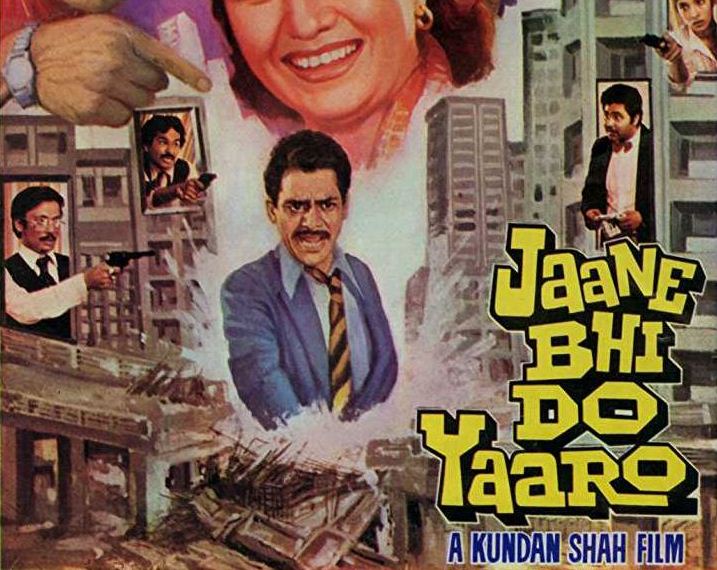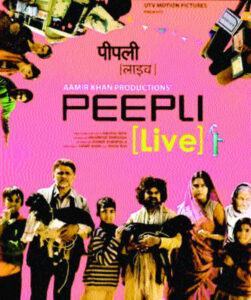World Laughter Day: Where did the political satires go?

Jane Bhi Do Yaaron not only left audiences in splits while it commented on corruption & pointed out systematic flaw of authorities
“Thankfully it came and went decades ago. I think it would not have released in the first place if it were to come today. I am also sure that people would have attacked the directors, abused the actors and for the female characters, it would have been way worse. Perhaps, that was just a better time to laugh and satirise political and societal issues. I cannot image anyone being able to do it today,” says Delhi-based Shifa Fatima who is a comedian and a filmmaker.
Shifa refers to the extraordinary Kundan Shah directed political satire film Jane Bhi Do Yaaro that released in 1983. Jane Bhi Do Yaaro not only left audiences in splits while it commented on the cases of corruption and pointed out the systematic flaw of the authorities but also gained the status of a cult classic over the years. The film is also one of the highest rated Indian comedies on IMDb (8.4/10). While Fatima celebrates the existence and popularity of the movie in Bollywood, she also says that the good days are gone when art was free to comment and criticise the government or any authority in India.
However, she says Modi’s government has signalled that it will extend legal cover to the campaign against religious offence which means to make sure that the religious sentiments are not hurt, especially that of the majority. It has announced new rules that force social media and digital platforms to take down any ‘offending’ content within 36 hours of a complaint being made.
With the recent amendment to OTT rules, government and its partisans have abetted a cultural clampdown with a chilling effect on freedom of speech and expression. “Sadly, in many cases, the authorities have not just failed to act against violent government supporters, but have also targeted peaceful critics,” she adds.
She goes on to say that there is not even an iota of hope that work similar to Jaane Bhi Do Yaaron will be ‘allowed’ by the government anymore, especially in the current political landscape where silencing all criticism is the priority.
“I know for a fact that no political criticism through any kind of art will be allowed today, be it a social media comment or even a publication, let alone in cinemas that have unmatched reach among citizens. Especially today, it is only laughable to think that politicians and their followers will even let you think about making a political satire,” she adds.
Anila Tripathi, a film studies professor at University of Delhi feels the same way. She says that the country has already seen horrific incidents and legal harassment that numerous stand-up comedians in the recent past have gone through just because their views were not welcomed by the majority. She feels it makes even the most vocal of filmmakers and directors afraid. “Criticising an artwork is alright. But threatening the artist is not. I can expect that from some people who act as hate-mongers but image the catastrophe that is our government who enables such people. Being vocal has cost directors and actors their whole careers even in best case scenarios, and jail terms at the worst. Why do we still expect that something like a political satire will be made anytime in near future?” asks Tripathi.
She goes on to mention the rapid decline in number of political satires that have released during last few years. Apart from the much talked about Peepli Live (2010) by Anusha Rizvi and Mahmood Farooqui, no other major political satire has made headlines in the past decade. Even the few on the OTT platforms, have been much criticised, faced boycotts and have either been banned or made to delete/cut important hard-hitting scenes. “Why will a director spend all time and money on a work that he knows, will not even be allowed to get a proper release? Why will the actors choose to act in a film or take a role, that they know, will be boycotted and ultimately be thrown out of the film at last?” she further asks.
Sociologist Shiv Visvanathan says the backlash against comedy cinema was strange when there had always been a strong comedy element to Indian folklore and cinema. “We have such amazing legacy of cinema in almost all parts of the country. Many of the most critically acclaimed pieces have been satires on politics, the inefficiency of the government and society in general. Suddenly, why is everything under the radar and it is a big red flag that the government doesn’t like criticism. You know it is time to question them. But unfortunately, they will not let you,” he says.
“Democracy is supposed to be happily quarrelsome and relaxed about the quarrel. If they do not let you speak, soon, democracy will be a thing of the past, like political satires are,” he adds.










